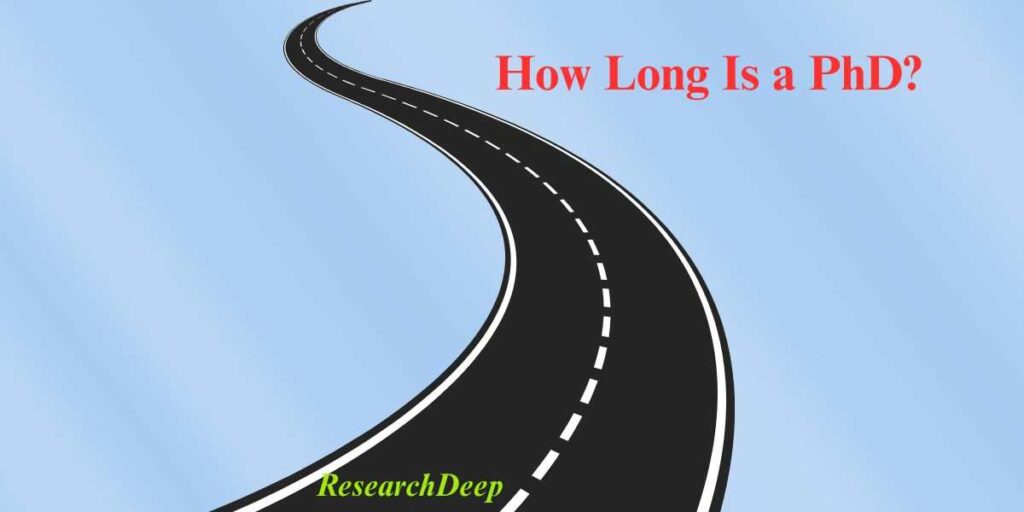| PhD Field | Career Opportunities | Research Impact |
|---|---|---|
| Computer Science & AI | Data science, academia, tech firms | Big data, automation |
| Biomedical Engineering | Biotech, medical devices | Healthcare innovations |
| Physics | Aerospace, academia, labs | Theoretical and applied physics |
| Psychology & Neuroscience | Clinical, academic, healthcare | Mental health research |
| Education | Policy, academia, administration | Curriculum development |
| Environmental Science | Research, policy, consulting | Sustainability initiatives |
| Economics | Policy advising, finance | Economic stability |
| Chemistry | Pharma, academia, environment | Drug development |
| Electrical Engineering | Telecom, academia, renewable energy | Electronics, clean energy |
| Business Administration | Consulting, corporate, academia | Organizational innovation |
| Law | Academia, policy, legal research | Legal frameworks |
| Mathematics | Finance, tech, academia | Data security |
| Sociology | Policy, academia, NGOs | Social equity |
| History & Anthropology | Museums, academia, research | Cultural preservation |
1. Computer Science and Artificial Intelligence (AI)
Why It’s Top-Ranked: With the increasing reliance on technology, computer science PhDs specializing in AI, machine learning, cybersecurity, or data science are in high demand. Graduates have opportunities in research, tech companies, and academia.
Career Opportunities: Data scientist, machine learning engineer, AI researcher, or academic professor.
Research Impact: Contributing to advancements in automation, big data, and machine learning.
2. Biomedical Engineering
Why It’s Top-Ranked: Biomedical engineering combines engineering with medicine, fostering innovations like medical devices, imaging, and tissue engineering.
Career Opportunities: Medical device companies, research institutions, hospitals, and biotech firms.
Research Impact: Advancements in prosthetics, artificial organs, and health monitoring systems.
3. Physics
Why It’s Top-Ranked: A PhD in physics opens doors to various fields, including academia, aerospace, technology, and research facilities like CERN. This field is ideal for those interested in theoretical or experimental research.
Career Opportunities: Research scientist, professor, roles in aerospace or energy sectors.
Research Impact: Contributions to understanding the universe, nuclear physics, or particle theory.
4. Psychology and Neuroscience
Why It’s Top-Ranked: Psychology and neuroscience PhDs study human behavior and brain function, making strides in mental health, cognition, and behavior research.
Career Opportunities: Clinical researcher, psychologist, academic, or roles in healthcare and education.
Research Impact: Mental health interventions, neurodevelopment, and understanding consciousness.
5. Education and Educational Leadership
Why It’s Top-Ranked. As education evolves, PhDs in educational leadership and policy are pivotal for driving innovations in curriculum, pedagogy, and policy.
Career Opportunities: University professors, policymakers, school administrators, and curriculum designers.
Research Impact: Contributions to educational equity, technology integration, and instructional innovation.
6. Environmental Science and Ecology
Why It’s Top-Ranked: With climate change and conservation concerns, environmental science PhDs are essential in shaping sustainable solutions and policies.
Career Opportunities: Environmental researcher, consultant, policy advisor, or academic.
Research Impact: Conservation, climate change mitigation, and ecosystem preservation.
7. Economics
Why It’s Top-Ranked: Economics PhDs analyze market trends, economic policies, and consumer behavior, with a strong emphasis on data analysis and theoretical models.
Career Opportunities: Economic analyst, policy advisor, academia, finance, and international organizations.
Research Impact: Economic policy, development economics, and financial stability.
8. Chemistry and Biochemistry
Why It’s Top-Ranked Chemistry and Biochemistry PhDs are at the forefront of drug development, chemical engineering, and materials science.
Career Opportunities: pharmaceutical research, academic roles, chemical manufacturing, or environmental science.
Research Impact: Medical treatments, sustainable materials, and environmental cleanup.
9. Electrical Engineering
Why It’s Top-Ranked: Electrical engineering PhDs lead innovations in telecommunications, renewable energy, robotics, and microelectronics.
Career Opportunities: R&D roles, academia, aerospace, telecommunications, and renewable energy sectors.
Research Impact: Smart grid technology, renewable energy, and semiconductor advancements.
10. Business Administration (DBA or PhD)
Why It’s Top-Ranked: A Doctor of Business Administration (DBA) or PhD in Business opens leadership roles in corporations, consulting, and academia.
Career Opportunities: corporate strategist, management consultant, professor, or researcher.
Research Impact: Organizational behavior, market strategies, and financial economics.
11. Law (SJD or PhD in Law)
Why It’s Top-Ranked: For those interested in legal academia or high-level policy analysis, a doctorate in law provides specialized knowledge and research credentials.
Career Opportunities: Legal researcher, professor, policy advisor, or judicial role.
Research Impact: Contributions to legal frameworks, human rights, and international law.
12. Mathematics and Applied Mathematics
Why It’s Top-Ranked: PhDs in mathematics or applied mathematics apply theoretical knowledge in fields like cryptography, computational modeling, and financial analysis.
Career Opportunities: Research roles in tech firms, finance, academia, and governmental agencies.
Research Impact: Algorithms, data security, financial modeling, and theoretical advancements.
13. Sociology and Social Policy
Why It’s Top-Ranked: Sociology PhDs analyze social behavior and the impact of policy, contributing to a deeper understanding of societal structures, inequality, and cultural dynamics.
Career Opportunities: Policy analyst, academic, research roles in NGOs, and international agencies.
Research Impact: Social justice, healthcare accessibility, and cultural studies.
14. History and Anthropology
Why It’s Top-Ranked: History and anthropology PhDs contribute to understanding human societies, cultural evolution, and heritage preservation.
Career Opportunities: academic roles, cultural heritage organizations, museums, and research institutions.
Research Impact: Historical understanding, cultural preservation, and societal insights.
FAQs
What are the best PhD degrees for high-paying jobs?
Economics and Biomedical Engineering PhDs are often highly compensated due to their strong demand in industry and academia.
Which PhD degrees are best for academia?
History, Anthropology, Sociology, and Education PhDs are well-suited for academic careers, especially in teaching and research roles.
Are STEM PhDs more valuable?
STEM fields often have broader applications in industry and hence may offer more lucrative and diverse career options.
Conclusion
Selecting the best PhD degree is both a personal and strategic decision, reflecting one’s interests, strengths, and long-term career goals. Pursuing one of these PhD degrees can lead to profound expertise, career advancement, and recognition in academia, industry, or beyond.
However, the demands and average salaries of each field differ, and considering job market trends, expected salaries, and growth potential is essential.
The best PhD degrees typically provide a balance between personal fulfillment and professional value, opening doors to impactful roles across sectors. Whether in engineering, science, business, or the humanities, a well-chosen PhD journey not only builds academic excellence but also a pathway to make meaningful contributions to society.


